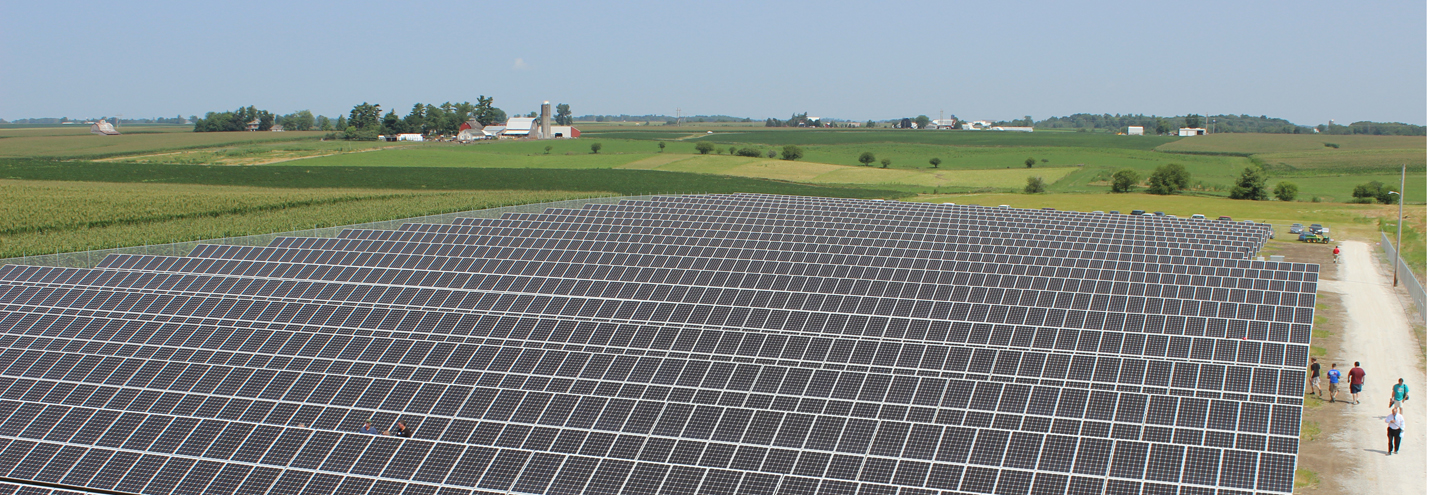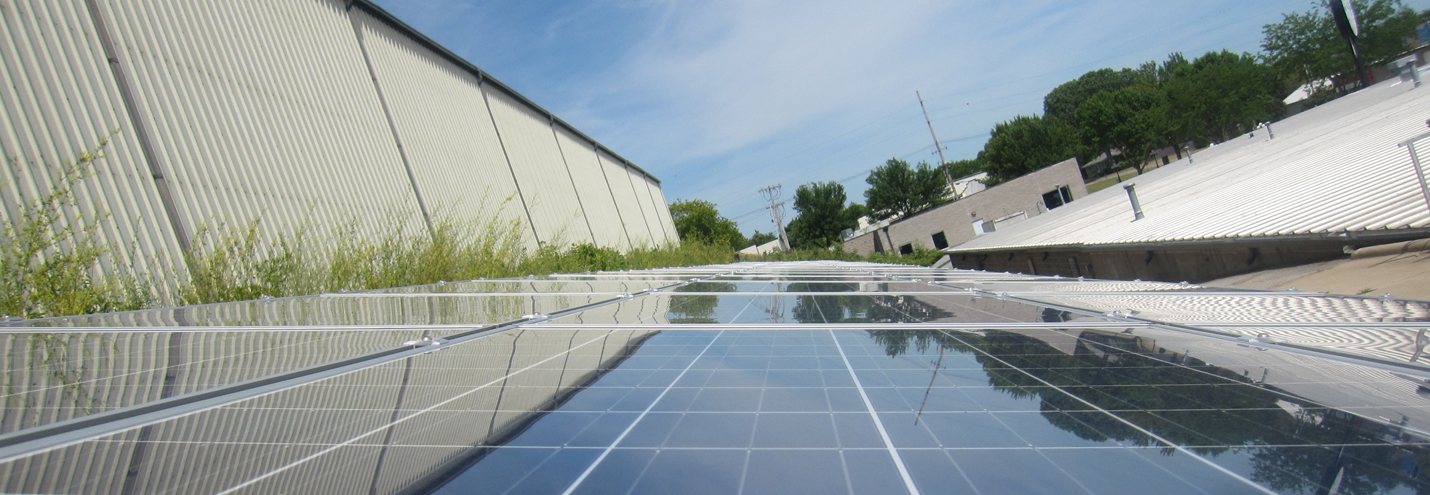Iowa Utilities Board Approves Net Metering Pilot Programs
posted
by Nathaniel Baer on Tuesday, June 6, 2017
On May 4th, the Iowa Utilities Board approved the revised net metering pilot programs from MidAmerican Energy and Alliant Energy. The approval concludes a long process to review and improve the pilot program proposals and kicks off the beginning of pilot programs intended to expand distributed renewable energy and collect data needed to inform any future policy changes. At the conclusion of the pilot programs in three to four years, we expect another data-driven process to determine next steps.
Alliant and MidAmerican were approved to implement pilot programs with some notable differences, but also some important improvements.
First, on the improvements, both utilities will net meter projects supported by third party financing such as power purchase agreements or leases, which was not clearly the case before. Both utilities will also raise the size of a project eligible for net metering from 500 kW to 1 MW (subject to other size or cap restrictions, which we address further below). Finally, both utilities will make net metering available to all customers, which again was not clearly the case before. These improvements were included in a Board order last summer as requirements for the pilots. We hope these improvements will lead to an expansion of distributed renewable energy.
In addition, customers that net meter will be required to cash out any excess net metering credits once a year. Previously there was no cash out, with any excess credits rolling over into future years. Although the Board originally proposed a cash out date in January, our coalition successfully advocated for an April cash out date as an option. The April cash out date allows customers to use excess retail credits during the winter, which should help a number of customers. Excess credits are cashed out at a fairly low avoided cost rate and half of the amount will go to funds that support low income customers rather than to the customer. As a result, we do not expect customers to see much from the cash out.
 The main area of concern has been a Board requirement that customers can only net meter up to 100% of their load. Depending on how this requirement is implemented, it can put an unnecessary limit on the size of renewable energy projects. We saw the annual cash out requirement as a sufficient mechanism to prevent customers from oversizing renewable energy systems, so this is an additional limit on system size. This is also where the MidAmerican and Alliant pilots differ.
The main area of concern has been a Board requirement that customers can only net meter up to 100% of their load. Depending on how this requirement is implemented, it can put an unnecessary limit on the size of renewable energy projects. We saw the annual cash out requirement as a sufficient mechanism to prevent customers from oversizing renewable energy systems, so this is an additional limit on system size. This is also where the MidAmerican and Alliant pilots differ.
MidAmerican will use a customer’s annual energy use to establish a cap on net metering, which is the practice under the previous tariff and vast majority of net metering programs in other jurisdictions. This allows customers to look at their recent energy use – easily available information – and project the size of the renewable energy system needed to generate that amount of energy over the course of a year.
In contrast, Alliant Energy will use a customer’s one time maximum annual kilowatt demand to cap the size of the renewable energy system eligible for net metering. For most customers that net meter, including residential, small business, and farm customers, Alliant does not have this data available for those customers. Instead, Alliant proposed to estimate customer demand, but did not provide the calculations, underlying data, or methodology that it would use to make that estimate.
Our coalition put significant effort into clarifying and improving this methodology after our requests to change the Alliant approach were not successful. In the end, we believe the clarifications and improvements will help and that system sizes under the new pilot will not be significantly smaller than system sizes under Alliant’s previous net metering policy. However, we reserve judgment as we wait for Alliant to file more information as required on July 1 and to see how customer experience goes with new solar or other renewable energy installations under the new pilot.
 Because part of the goal of the pilot programs is to collect data to inform future policy decisions, the Council and partners will closely monitor how these pilot programs are functioning. We hope the improvements outweigh the areas of concern and the pilots accomplish the goal of expanding distributed renewable energy.
Because part of the goal of the pilot programs is to collect data to inform future policy decisions, the Council and partners will closely monitor how these pilot programs are functioning. We hope the improvements outweigh the areas of concern and the pilots accomplish the goal of expanding distributed renewable energy.